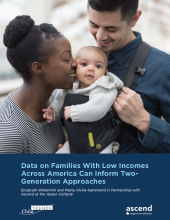0
Report
Community:
May 17, 2023
Researchers at UC Berkeley’s Youth and Allies Against Homelessness, or YAAH, conducted a study to better understand how the COVID-19 pandemic disproportionately affected unhoused youth and their ability to transition out of homelessness and into adulthood. YAAH released a report Wednesday to suggest how to better support this community in the future.
Authored by: UC Berkeley's Youth Allies Against Homelessness for The Daily Californian
Topics: Broadband, COVID-19, Food insecurity, Health, Homelessness, Housing, Low-income, Mental health, Racial inequalities, Youth
 Shared by Sandra Ware
Shared by Sandra Ware
Sandra Ware posted a
on May 25, 2023
UC Berkeley's Youth Allies Against Homelessness for The Daily Californian
Researchers at UC Berkeley’s Youth and Allies Against Homelessness, or YAAH, conducted a study to better understand how the COVID-19 pandemic disproportionately affected unhoused youth and their ability to transition out of homelessness and into adulthood.
0
Report
Community:
Mar 1, 2023

We are delighted to share a new research report in partnership with Child Trends: Data on Families with Low Incomes Across America Can Inform Two-Generation Approaches. In this new analysis, research experts Elizabeth Wildsmith and Marta Alvira-Hammond paint a detailed picture of how families in households with low incomes in the United States have changed since 2011. The report highlights 10 key findings from their analyses of family economic and social conditions related to financial security and mobility, family structure and living arrangements, education and employment, parental health, and community health indicators (for example, rates of child poverty, violent crime, child care costs). A deeper understanding of families with low-incomes will inform our collective work and strengthen how our 2Gen policy and practice recommendations can prioritize health, education, employment, and economic assets to ensure families have access to the resources they need to build intergenerational prosperity and well-being.
Authored by: Elizabeth Wildsmith and Marta Alvira-Hammond for Child Trends in partnership with Ascend at the Aspen Institute
Topics: dual-generation initiative, Early childhood, Education, Health, Housing, Legislation & Policy, Low-income, Racial inequalities
 Shared by Sandra Ware
Shared by Sandra Ware
Sandra Ware posted a
on Mar 2, 2023
Elizabeth Wildsmith and Marta Alvira-Hammond for Child Trends in partnership with Ascend at the Aspen Institute
We are delighted to share a new research report in partnership with Child Trends: Data on Families with Low Incomes Across America Can Inform Two-Generation Approaches.
0
Report
Community:
Apr 11, 2022
Educators play an important role in supporting students' mental well-being. The pandemic has added incredible layers of stress for both adults and young people. Although educators can't control all the stressors and sources of trauma affecting them, they can foster healing and wellness in their classroom or program and work to remove the stigma around mental health concerns.
Authored by: First Book Research & Insights
Topics: Advocacy, Depression, Early childhood, Education, Health, Healthy homes, Literacy, Low-income, Mental health, Racial inequalities, Research, School-readiness, Youth
 Shared by Stephanie Gray
Shared by Stephanie Gray
Stephanie Gray posted a
on Apr 11, 2022
First Book Research & Insights
Educators play an important role in supporting students' mental well-being. The pandemic has added incredible layers of stress for both adults and young people.
0
Report
Community:
May 15, 2019
Where you live is linked to how healthy you are.Sadly, U.S. Latino communities are marked by lower-quality, unaffordable housing, as well as high risk for eviction and displacement. This contributes to health inequities in this population. That’s what we found in our new research review, The State of Latinos and Housing, Transportation, and Green Space, released on May 14, 2019, by my team at Salud America!, a national network for health equity at UT Health San Antonio.
Authored by: Amelie Ramirez for Salud America!, UT Health San Antonio and the National Low Income Housing Coalition
Topics: Health, Housing, Racial inequalities, Research
 Shared by Housing Is
Shared by Housing Is
Housing Is posted a
on May 15, 2019
Amelie Ramirez for Salud America!, UT Health San Antonio and the National Low Income Housing Coalition
Where you live is linked to how healthy you are.Sadly, U.S. Latino communities are marked by lower-quality, unaffordable housing, as well as high risk for eviction and displacement. This contributes to health inequities in this population.
0
Interactive
Community:
The NQP Social Determinants of Health Data Integration Action Team brings together experts and recognized leaders from the private and public sectors committed to accelerating the integration of data on social determinants of health (SDOH) into clinical practice. Through a series of web meetings and one in-person forum, the NQP Social Determinants of Health Data Integration Action Team Action Team will develop and share successful approaches to integrating SDOH data to support providers and communities in their efforts to eliminate disparities.
Authored by: National Quality Forum
Topics: Data sharing, Health, Partnerships, Racial inequalities, Research
 Shared by Housing Is
Shared by Housing Is
Housing Is posted a
on Mar 18, 2019
The NQP Social Determinants of Health Data Integration Action Team brings together experts and recognized leaders from the private and public sectors committed to accelerating the integration of data on social determinants of health (SDOH) into clinical practice.
0
Report
Community:
These Principles are derived from a thematic review of mission statements and principles from 35 organizations representing the community development, health, academic, government, finance, and philanthropic sectors. More than 200 respondents provided over 1,800 comments which helped refine the Principles below.
Authored by: Build Healthy Places Network
Topics: Community development, Health, Housing, Partnerships, Racial inequalities
 Shared by Housing Is
Shared by Housing Is
Housing Is posted a
on Mar 11, 2019
Build Healthy Places Network
These Principles are derived from a thematic review of mission statements and principles from 35 organizations representing the community development, health, academic, government, finance, and philanthropic sectors.
0
Report
Community:
Jul 18, 2018
This Issue Brief provides an update on the beneficiary experience in the first two demonstrations that were implemented as part of the Centers for Medicare & Medicaid Services (CMS) Financial Alignment Initiative to test integrated care and financing models for Medicare-Medicaid enrollees. The Washington Health Homes MFFS demonstration, a managed fee-forservice model demonstration, and the Massachusetts One Care demonstration, a capitated model demonstration, began operations on July 1st and October 1st of 2013, respectively.
For the purposes of this report, special populations encompass the following: (1) enrollees who use long-term services and supports (LTSS) which include nursing facilities, personal care services, residential care facilities, and adult day care; (2) enrollees with behavioral health needs, including those with serious and persistent mental illness (SPMI) such as schizophrenia and bipolar disorder; and (3) linguistic, ethnic, and racial minorities enrolled in the demonstrations. The purpose of this brief is to report how enrollees who use these services are faring under the Washington and Massachusetts demonstrations and to understand if disparities in services and demonstration experiences exist for these groups.
Authored by:
Topics: East Coast, Health, Healthy homes, Immigrants, Low-income, Medicaid / Medicare, Pacific Northwest, Partnerships, Racial inequalities, Research
 Shared by Housing Is
Shared by Housing Is
Housing Is posted a
on Jul 18, 2018
This Issue Brief provides an update on the beneficiary experience in the first two demonstrations that were implemented as part of the Centers for Medicare & Medicaid Services (CMS) Financial Alignment Initiative to test integrated care and financing models for Medicare-Medicaid enrollees.
0
Report
Community:
Jul 18, 2018
This Issue Brief describes the results of focus groups conducted in six States as part of the Centers for Medicare & Medicaid Services Financial Alignment Initiative to test integrated care and financing models for Medicare-Medicaid enrollees. Five of these States—California, Illinois, Massachusetts, Ohio, and Virginia—are implementing a capitated model demonstration in which Medicare-Medicaid Plans (MMPs) provide coordinated benefits and access to new and flexible services through a person-centered care model. One, Washington, is implementing a managed fee-for-service model demonstration in which health homes are responsible for organizing enhanced integration of primary, acute, behavioral, and long-term services and supports across existing delivery systems for Medicare-Medicaid enrollees and for directing person-centered care for high-cost, high-risk enrollees.
Authored by:
Topics: Cost effectiveness, Health, Healthy homes, Low-income, Medicaid / Medicare, Partnerships, Racial inequalities, Research
 Shared by Housing Is
Shared by Housing Is
Housing Is posted a
on Jul 18, 2018
This Issue Brief describes the results of focus groups conducted in six States as part of the Centers for Medicare & Medicaid Services Financial Alignment Initiative to test integrated care and financing models for Medicare-Medicaid enrollees.
0
Report
Community:
Jul 11, 2018
The 2017 edition of the Commonwealth Fund Scorecard on State Health System Performance finds that nearly all state health systems improved on a broad array of health indicators between 2013 and 2015. During this period, which coincides with implementation of the Affordable Care Act’s major coverage expansions, uninsured rates dropped and more people were able to access needed care, particularly those in states that expanded their Medicaid programs. On a less positive note, between 2011–12 and 2013–14, premature death rates rose slightly following a long decline. The Scorecard points to a constant give-and-take in efforts to improve health and health care, reminding us that there is still more to be done.
Authored by:
Topics: Affordable Care Act, Cost effectiveness, Health, Legislation & Policy, Low-income, Medicaid / Medicare, Preventative care, Racial inequalities, Research
 Shared by Housing Is
Shared by Housing Is
Housing Is posted a
on Jul 11, 2018
The 2017 edition of the Commonwealth Fund Scorecard on State Health System Performance finds that nearly all state health systems improved on a broad array of health indicators between 2013 and 2015.
0
Report
Community:
Jul 10, 2018
HUD Administrative Data Linked with the National Health Interview Survey
Authored by:
Topics: Attendance, Child welfare, Data sharing, Dental, Health, Housing, Low-income, Medicaid / Medicare, Mental health, Metrics, Racial inequalities, Vision
 Shared by Housing Is
Shared by Housing Is
Housing Is posted a
on Jul 10, 2018
HUD Administrative Data Linked with the National Health Interview Survey


 Shared by Sandra Ware
on May 25, 2023
Shared by Sandra Ware
on May 25, 2023


 Shared by Sandra Ware
on Mar 2, 2023
Shared by Sandra Ware
on Mar 2, 2023

 Shared by Stephanie Gray
on Apr 11, 2022
Shared by Stephanie Gray
on Apr 11, 2022
 Shared by Housing Is
on May 15, 2019
Shared by Housing Is
on May 15, 2019
 Shared by Housing Is
on Mar 18, 2019
Shared by Housing Is
on Mar 18, 2019
 Shared by Housing Is
on Mar 11, 2019
Shared by Housing Is
on Mar 11, 2019
 Shared by Housing Is
on Jul 18, 2018
Shared by Housing Is
on Jul 18, 2018
 Shared by Housing Is
on Jul 18, 2018
Shared by Housing Is
on Jul 18, 2018
 Shared by Housing Is
on Jul 11, 2018
Shared by Housing Is
on Jul 11, 2018
 Shared by Housing Is
on Jul 10, 2018
Shared by Housing Is
on Jul 10, 2018